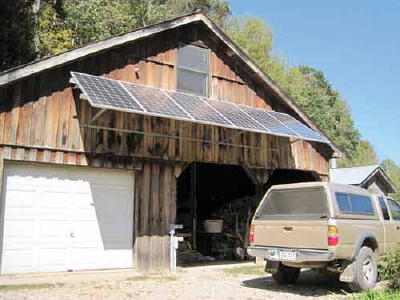| State Could Make Reliability Of Home Solar More Accessible
By Pam Kasey for the STATE JOURNAL
With major storms walloping West Virginia's grid twice this year, the old ideal of back-to-the-landers and survivalists â getting off the grid â starts to seem like just plain good sense to some people.
Small-scale solar systems have come a long way since the 1960s. And when they're tied to batteries and to the grid, they offer the convenience of utility service with the assurance of reliability.
"Just think if we had this in neighborhoods around the state," said Calhoun County solar owner and electricity policy observer and blogger Bill Howley. "We wouldn't have all these people running into gas stations when there are blackouts to get fuel for their generators â we wouldn't have all this pressure on emergency services and shelters."
Beyond ensuring reliability that utilities can't, home solar systems can also generate income, Howley pointed out. And a market for solar systems creates jobs and expertise in a forward-looking field.

Photo courtesy of Bill Howley
But that's a demand, and a market, that the state's policies make or break.
The Price of Reliability
Howley said his six solar panels, an installed capacity of 1.4 kilowatts, generate 7 to 7.5 kilowatt-hours of electricity on a sunny fall day. That's far less than the daily average household use of 1,200 kWh/month or about 40 kWh/day. But Howley's bank of eight deep-cycle 6-volt batteries, fully charged, can keep his critical systems going for a week with no sun at all.
Read Rest Of Story State could make reliability of home solar more accessible by Pam Kasey for the STATE JOURNAL
| 


